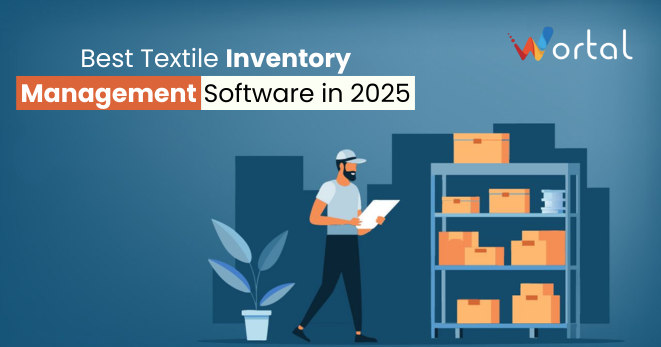
The Rising Need for Smarter Inventory Systems
Managing inventory in the textile industry has always been a balancing act between supply, demand, seasonality, and style. In 2025, the need for smarter, more agile inventory management is more important than ever. From raw materials like yarn and dyes to finished goods such as garments, fabrics, or home textiles, businesses must track every detail to stay competitive. This year, inventory management software has evolved significantly, offering features tailored specifically for textile businesses that demand accuracy, traceability, and flexibility.
Why Textile Inventory is Uniquely Challenging
Textile businesses, whether they’re manufacturing units, fabric wholesalers, or fashion retailers, face unique challenges. Unlike traditional inventory, textile goods vary not just by quantity but by color, pattern, length, and batch. A one-size-fits-all inventory solution rarely works. Without the right tools, tracking fabric rolls, managing dye lots, or keeping up with fluctuating trends can become overwhelming. Businesses need software that understands the depth and diversity of textile inventory and adapts accordingly.
Wortal CRM: A Tailored Solution for Indian Textile Businesses
In 2025, industry-specific solutions are gaining traction, and one such standout is Wortal CRM—a cloud-based system developed with Indian textile businesses in mind. It helps users manage stock in rolls, meters, pieces, or kilograms while also offering advanced features like dye lot tracking, GST-ready billing, barcoding, and real-time stock updates. Wortal’s interface is clean, intuitive, and ideal for both experienced professionals and small business owners who are just transitioning from manual processes. Its ability to integrate with CRM, employee management, and role-based user access makes it a complete business suite beyond just inventory.
Sortly: Inventory Management with a Visual Edge
Another notable player in the textile tech space is Sortly. This software brings a visual twist to inventory management. Businesses can upload images of their fabrics or products, categorize them with tags, and easily track them via mobile apps. This is especially helpful for retailers and traders who deal with diverse fabric collections and need a quick visual reference while fulfilling orders. Sortly isn’t just user-friendly; it’s designed to simplify complexity with its drag-and-drop interface and customizable fields. It works well for businesses looking for a cloud-based, mobile-first solution.
Zed Axis: Complete ERP for Large Textile Operations
Large-scale textile manufacturers often prefer full-fledged ERP systems that integrate inventory with production, sales, purchase, and accounts. Zed Axis is one such solution. It’s engineered for end-to-end textile operations, supporting everything from loom planning to dispatch. The system is well-equipped to handle raw fabric processing, order tracking, dyeing details, and even customer-specific packing instructions. For growing manufacturers who deal with a large workforce and multiple locations, Zed Axis brings structure, automation, and detailed analytics to every stage of the production and delivery process.
Cin7 Core and GoFrugal: Global and Retail-Focused Alternatives
For textile exporters or multi-channel businesses, Cin7 Core (formerly DEAR Systems) is proving to be a powerful option. It offers real-time inventory tracking, manufacturing module support, and seamless integration with eCommerce platforms. It’s best suited for companies with a global footprint that need detailed batch tracking and order synchronization across multiple warehouses.
On the other hand, GoFrugal caters more to the retail side of the textile world. Its POS-enabled inventory system is perfect for garment and fabric retailers. With barcode support, mobile stock checks, and multi-branch compatibility, GoFrugal simplifies daily operations while staying compliant with local tax regulations like GST. Its affordable pricing and local support make it a great choice for fabric showrooms and boutiques in India.
Making the Right Choice for Your Textile Business
Choosing the best textile inventory software in 2025 depends on several factors including business size, sales channels, operational complexity, and future growth plans. A small retail shop may benefit more from a solution like GoFrugal or Sortly, while a textile exporter or manufacturer would be better served by Wortal CRM or Zed Axis. The right solution should not only reduce manual work and errors but also provide visibility into every aspect of your business—from procurement to delivery.
Conclusion
As the textile industry becomes more competitive, investing in the right inventory management software is no longer optional. It’s the key to improving efficiency, minimizing wastage, reducing delays, and delivering better service to customers. Among the top contenders in 2025, Wortal CRM stands out for its industry-specific features, simplicity, and cost-effectiveness—especially for Indian textile businesses. It brings the perfect balance of power and usability, making it the ideal choice for companies looking to upgrade their operations and grow with confidence.

































